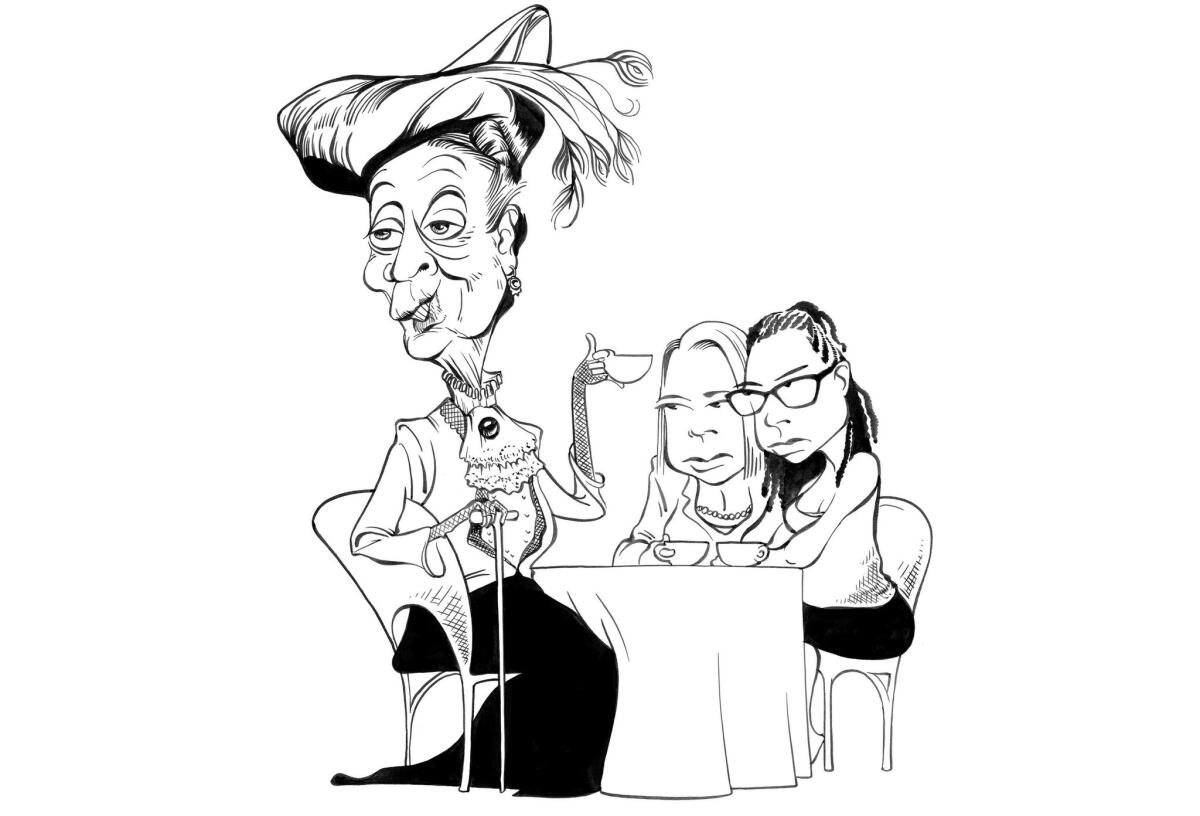Emmys 2014: Glenn Whipp, Mary McNamara on Emmy ills and how to cure them

Emmy nominations produced more than the usual amount of weeping and gnashing of teeth this year, with a number of worthy series and performances going unnoticed. Is it time to overhaul the system? Times television critic Mary McNamara and The Envelope’s Gold Standard awards columnist Glenn Whipp float some possible fixes.
Whipp: An obvious first step is to expand the categories. I thought that would happen with the series categories when the academy announced it would allow a seventh nominee in each, provided the vote was close. But apparently “Downton Abbey” is way more popular than “The Good Wife” or “The Americans” or any number of other shows. With the number of platforms now, it’s hard to imagine going back to the days when Charlie Sheen wins five consecutive nods for a lack of competition. Let’s make more room. Maybe then, Mary, your beloved “Orphan Black” won’t be an Emmy urchin next year.
McNamara: “Orphan Black’s” Tatiana Maslany and Jordan Gavaris should have gotten nominations; the snobbery the academy continues to show toward sci-fi and fantasy has nothing to do with numbers. The fact that “Downton Abbey” got two supporting actress nominations while “Game of Thrones,” which has some of the best-acted, most complicated female characters in the history of television, got just one says it all. But the ever-diversifying types of television certainly make the current categories problematic. We’ve been seeing some logistical fudging already with “American Horror Story” repeatedly in the mini-series category; this year, the final episode of “Sherlock” was nominated in the movie category, which is just wierd.
Whipp: With the success of “True Detective” and “Fargo,” we’re likely to see more of these types of anthology shows, which is why the television academy should make some hard-and-fast rules right now about category placement. “True Detective” should be competing against “Fargo” for miniseries — and wouldn’t that be an interesting battle worthy of debate? — which would have left another spot for a deserving drama. And you’re right, the network shows are at a bit of a disadvantage because of the volume they’re required to produce.
McNamara: I wonder if it’s time to consider categories defined by numbers of episodes. Is it fair that a 23-episode series like “The Good Wife,” confined by broadcast network standards, must compete with an eight- or 10-episode program that can explore the hard-R universe? But more categories won’t solve what may be the fundamental problem of television: too much of muchness. As a television critic, I can’t begin to watch everything that’s on today. Imagine the plight of television academy members.
Whipp: The television academy has more than 16,000 voting members, and I’m guessing the vast majority of them didn’t watch “Orphan Black.” Perhaps it’s time to make the nomination voting more specialized, with panels of peers and voters who don’t have a conflict of interest. That’s how the Emmys are voted on after the nominations are in. So why not before? It might reduce favoritism and reward the best TV over institutions. (Think “Key & Peele” over “Saturday Night Live.”)
McNamara: That’s a great idea, if logistically ambitious. My growing concern is that television is being judged by film standards, but a television show is an ongoing, organic, ever-shifting piece of art; to judge it on one episode, or three, not only diminishes its power, it sort of misses the point. Sustainability — how do the writers of “Game of Thrones” keep it so beautifully paced? — and the ability to shift gears — as “The Good Wife” did this season and “Scandal” did so successfully after its mediocre debut — these are some of the things that make great television. I don’t have the answer — asking members to watch entire seasons is obviously ridiculous — but it seems like these things need to be taken into as much consideration as the power of a few episodes.
Sign up for the Envelope Newsletter
More to Read
From the Oscars to the Emmys.
Get the Envelope newsletter for exclusive awards season coverage, behind-the-scenes stories from the Envelope podcast and columnist Glenn Whipp’s must-read analysis.
You may occasionally receive promotional content from the Los Angeles Times.








